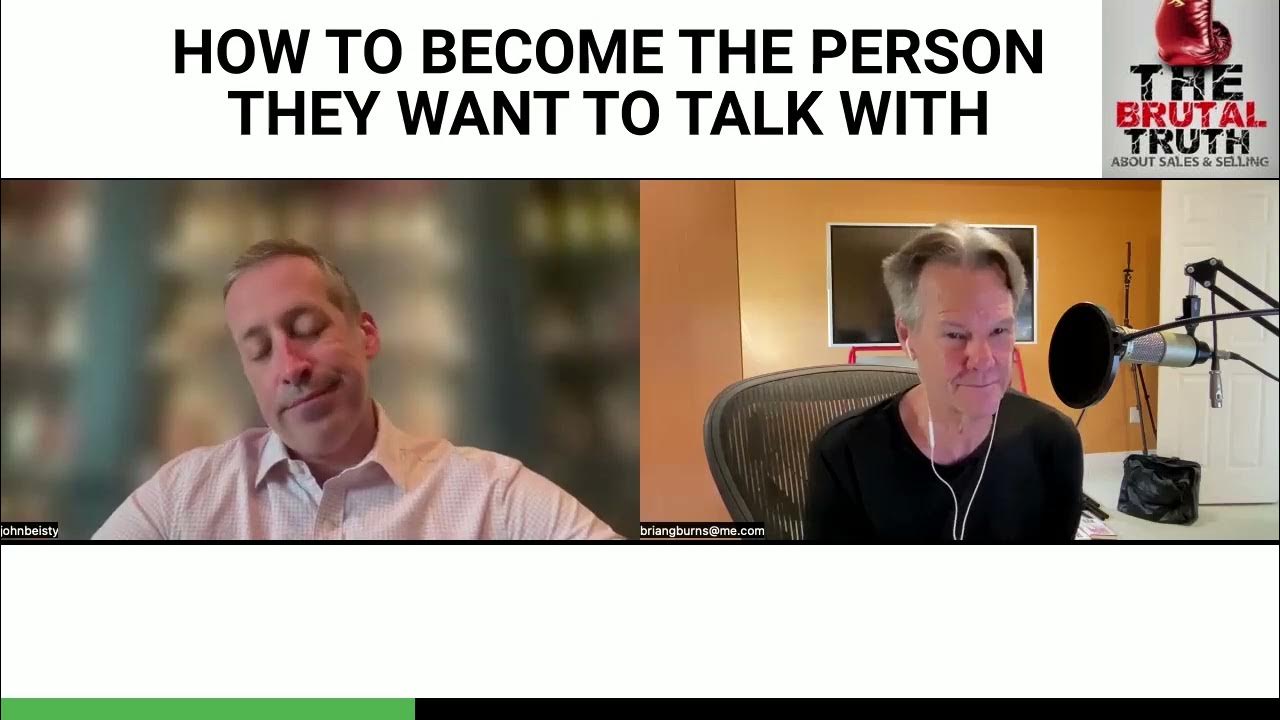Common Cold Call Objections and How To Overcome Them
Summary
TLDRTrent, a seasoned software sales professional, shares his insights on overcoming cold call objections in this informative video. With over 60,000 calls under his belt, he emphasizes the importance of targeting the right prospects and maintaining a positive attitude despite daily rejections. He outlines a three-part framework for handling objections, including assessing the prospect's mood, providing a clear reason for the call, and responding effectively to common objections like budget constraints or existing solutions. Trent's script and strategies aim to build genuine relationships, not just secure meetings, positioning salespeople for long-term success.
Takeaways
- 😎 Trent, a seasoned software sales professional since 2018, shares insights on overcoming objections in cold calls.
- 📞 Trent emphasizes the importance of maintaining a short memory and not letting a negative interaction affect subsequent calls.
- 👤 He stresses the human aspect of cold calling, reminding that there's a real person behind each call, and to approach with empathy.
- 💡 Trent outlines a three-part framework for handling cold call objections: identifying the right prospects, crafting a compelling cold call script, and overcoming objections.
- 🔍 He advises on the importance of calling the right prospects, considering factors like their ability to make purchases and their relevance to the product or service.
- 🏆 Trent uses the analogy of 'mining for gold' to describe the process of prospecting and emphasizes the need for a diversified pipeline.
- 🗣️ He provides a sample cold call script, starting with a personal greeting, followed by a clear reason for the call, and then a request for time.
- 🛡️ Trent offers strategies for dealing with initial objections, such as asking for 30 seconds to explain the reason for the call or suggesting a specific time for a callback.
- 💼 He discusses handling objections related to budget, existing solutions, or lack of interest by reaffirming the prospect's stance and then focusing on the potential value of a meeting.
- 💼 Trent suggests preparing responses to common objections and being ready to adapt them based on the conversation's flow to build a relationship and demonstrate value.
Q & A
What is the primary focus of Trent's YouTube channel?
-Trent's YouTube channel focuses on software sales techniques, particularly on overcoming objections during cold calls.
How long has Trent been working in software sales?
-Trent has been working in software sales since 2018.
What is the importance of having a short memory in cold calling as mentioned by Trent?
-Having a short memory in cold calling is important because it helps to not let a negative interaction with one prospect affect the approach with the next, maintaining a positive and professional demeanor throughout all calls.
What are the three parts of the framework for cold call objection handling that Trent discusses?
-The three parts of the framework for cold call objection handling are: identifying who you are calling, what you are saying on the call (cold call script), and how to overcome objections.
Why is it crucial to call the right prospects according to Trent?
-It is crucial to call the right prospects because calling qualified individuals increases the chances of setting meetings, generating pipeline, and closing revenue. It also ensures that the sales efforts are directed towards those who have the authority and budget to make purchasing decisions.
How does Trent suggest handling objections at the beginning of a cold call?
-Trent suggests asking for 30 seconds to explain the reason for the call if the prospect tries to rush off the call. If they insist on ending the call, he recommends scheduling a specific time to call back and sending a calendar invite to ensure the call happens.
What is Trent's approach to dealing with objections about budget or existing solutions?
-Trent's approach is to reaffirm the prospect's statement, validate their current situation, and then explain the reason for the call without pressuring them to change anything immediately. He emphasizes building a relationship and offering help for potential future needs.
How does Trent recommend preparing for common objections in cold calls?
-Trent recommends writing down the most common objections and preparing specific responses to each. This preparation helps in responding automatically and effectively during calls without overthinking.
What is the significance of the 'gold mining' analogy used by Trent?
-The 'gold mining' analogy signifies the process of sifting through various prospects to find those who are most likely to convert into successful sales. It emphasizes the importance of quality over quantity in the sales prospecting process.
Why does Trent suggest not rushing the call and asking for 30 seconds to explain the reason for the call?
-Asking for 30 seconds ensures that the salesperson has an opportunity to present their value proposition and the reason for the call, which can help in overcoming initial objections and potentially setting up a meeting or follow-up call.
Outlines

Cette section est réservée aux utilisateurs payants. Améliorez votre compte pour accéder à cette section.
Améliorer maintenantMindmap

Cette section est réservée aux utilisateurs payants. Améliorez votre compte pour accéder à cette section.
Améliorer maintenantKeywords

Cette section est réservée aux utilisateurs payants. Améliorez votre compte pour accéder à cette section.
Améliorer maintenantHighlights

Cette section est réservée aux utilisateurs payants. Améliorez votre compte pour accéder à cette section.
Améliorer maintenantTranscripts

Cette section est réservée aux utilisateurs payants. Améliorez votre compte pour accéder à cette section.
Améliorer maintenantVoir Plus de Vidéos Connexes

The Best Cold Calling Script That Actually Works

10 типов клиентов в продажах и как продать каждому | 18+

BECOMING THE PERSON CLIENTS WANT TO SPEAK WITH - The Brutal Truth about Sales Podcast

Become a CONCEPT ARTIST for video games - What to practice?

Cold Calling Real Estate Leads LIVE! (I got 2 listings leads in 17 MINUTES)

Advanced Looping | Free Sales Training Program | Sales School with Jordan Belfort
5.0 / 5 (0 votes)
